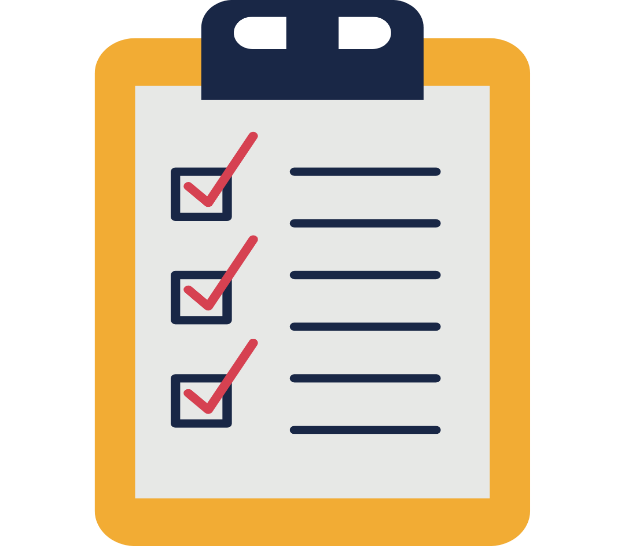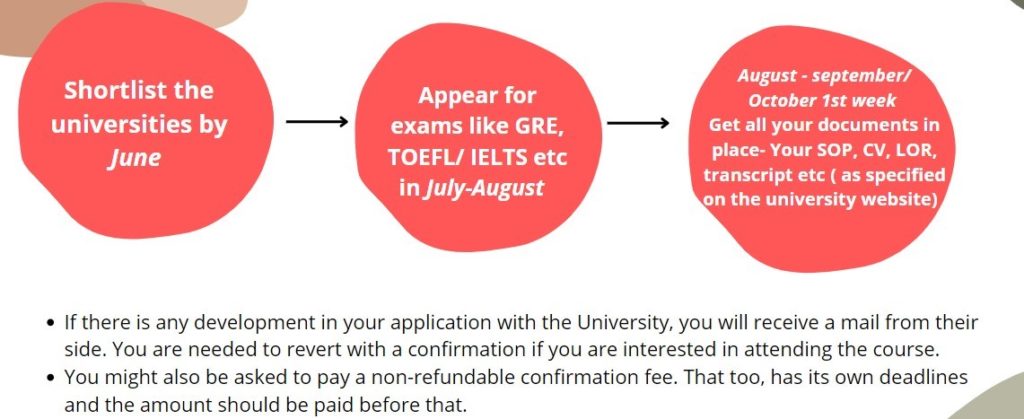
Overseas education in general can be a daunting task for the majority, but it is also a thrilling journey that can completely transform one’s life and make a great career choice. However, the dilemma of going for it or not is often a difficult choice for both students and parents. There are a bunch of questions that students naturally come across, which should be taken into consideration before applying for admission into a foreign university.
Here’s a list of some questions one should ask before making the final decision to study abroad.
1. Which course should I pursue and how good is it?
Identifying your area of interest is very important before you can narrow your research and decide on the course you would want to go for abroad. Make sure to study the scope and benefits of the course in the country of your choice and the university ranking is an added advantage. Do thorough research on the course and the university, and see what extra it offers apart from a regular degree. Get in touch with the alumni on LinkedIn or any other relevant platform and clear your doubts.
2. Am I able to afford it?
Money matters, therefore, this is one of the main questions that one should ask and figure out how one is going to pay for fees, living fees, and additional costs like VISA, Insurance, tickets, medical checkups, etc. This is why it’s very important to skim through various programs offered by noted foreign universities and carefully understand their fee structure. If you are taking a loan then it becomes important to start with the formalities much in advance to avoid any delay in the visa process.
3. Will I be eligible for jobs in my country of choice?
Many one-year degrees or diplomas aren’t given much weightage by employers. In some cases, even though a person has a degree from a reputable international university, they may still have difficulty finding employment.
To avoid unemployment, it is crucial to first determine whether a foreign degree will make a person eligible for employment in their home country or any other country of their choice. Then, look for institutions that provide programs that are accepted by companies.In some courses like psychology, it becomes important for your course to be accredited with the psychological body in the country of study for you to be able to practice there.
4. Do I have friends or relatives out there?
It can be quite beneficial to have friends or family members in a foreign country where one is traveling for the first time. One could learn about local customs and get the best baccommodations with the aid of local contacts. Plus, they will also act as local guardians in case of any emergencies. It’s, therefore, advisable to know a couple of reliable people out there on whom you can fall back when things go downhill.
5. Am I open to cultural fit and extending my network?
The world is a mixed bag of people, but not everyone is an extrovert. Some want to pursue higher studies abroad but have no interest in acclimatizing to the new culture. This can be quite challenging especially when one is completely reluctant to adapt to the new environment.
6. How convenient is it to manage other finances?
One must wisely handle a wide range of expenses when studying abroad, including cell phone bills, food and grocery bills, transportation costs, health care costs, and insurance, among others. Additionally, one’s costs occasionally may exceed the amount of pocket money granted by parents. One should aim to take up part-time jobs that might help them handle additional expenses effortlessly to prevent such scenarios. One should also be prepared to balance work with studies.

Decoding the list of questions: How to Choose Your Master’s Degree Abroad
- Start with your interests: finding the area of your choice and interest will help you find the right course. This would ultimately be helpful once you start with your classes because doing a course you have no interest in is a sheer waste of
- Meet the university admission requirements: as listed on the course webpage under the university website.
- Focus on your future career: a solid career after you graduate is a must, so work towards it right from the beginning, do internships, and take up research/ teaching assistant part-time jobs to strengthen your CV and gain some skills which would come in handy while looking for a job.
- Research the university’s reputation and ranking
- Find out if your previous qualifications are transferable: your undergrad degree should be accepted in the country of your choice and the course, you would be going In some cases, the university might require an additional diploma course to fulfill the admission criteria.
- Match your extracurricular experience with the degree requirements: you can do some internships, take classes, publish papers, volunteer, participate in MUNs and debates, etc. as per your degree requirements
- Application Strength: Application expectations vary by program, but some general ingredients for a solid application include a strong undergraduate GPA, compelling recommendations, a good GRE score, and a great personal statement. Some programs may also expect other things, including academic publications, research, or teaching experience. If you have all the elements that your programs of interest expect, you’re well-positioned to apply.
Document checklist:
- Transcripts (Predicted scores in case you are applying after 12th grade)
- An English Language Requirements certificate with minimum scores of 7.0 in IELTS and 100 in TOEFL
- Extracurricular activities record
- Work Experience may be required for some programs
- Statement of purpose
- LOR
- CV
- Valid Passport & Student Visa of the country you’ve selected.
- Medical Certificate (different for different countries)
- Faculty and their research profile: a glance at the faculty profile would help you get to know the faculty better at a professional level, about their areas of interest and their past work. This would help you to know which faculty’s interests and area of work aligns with yours.
- Get in touch with the alumni: to get an idea about the course, its scope, and campus
Note: consult a specialized educational firm for finances, visa, and admission-related process
Timeline for applying abroad

Note: keep a track of deadlines
Best of luck!
Blog By : Nishtha Nayyar

